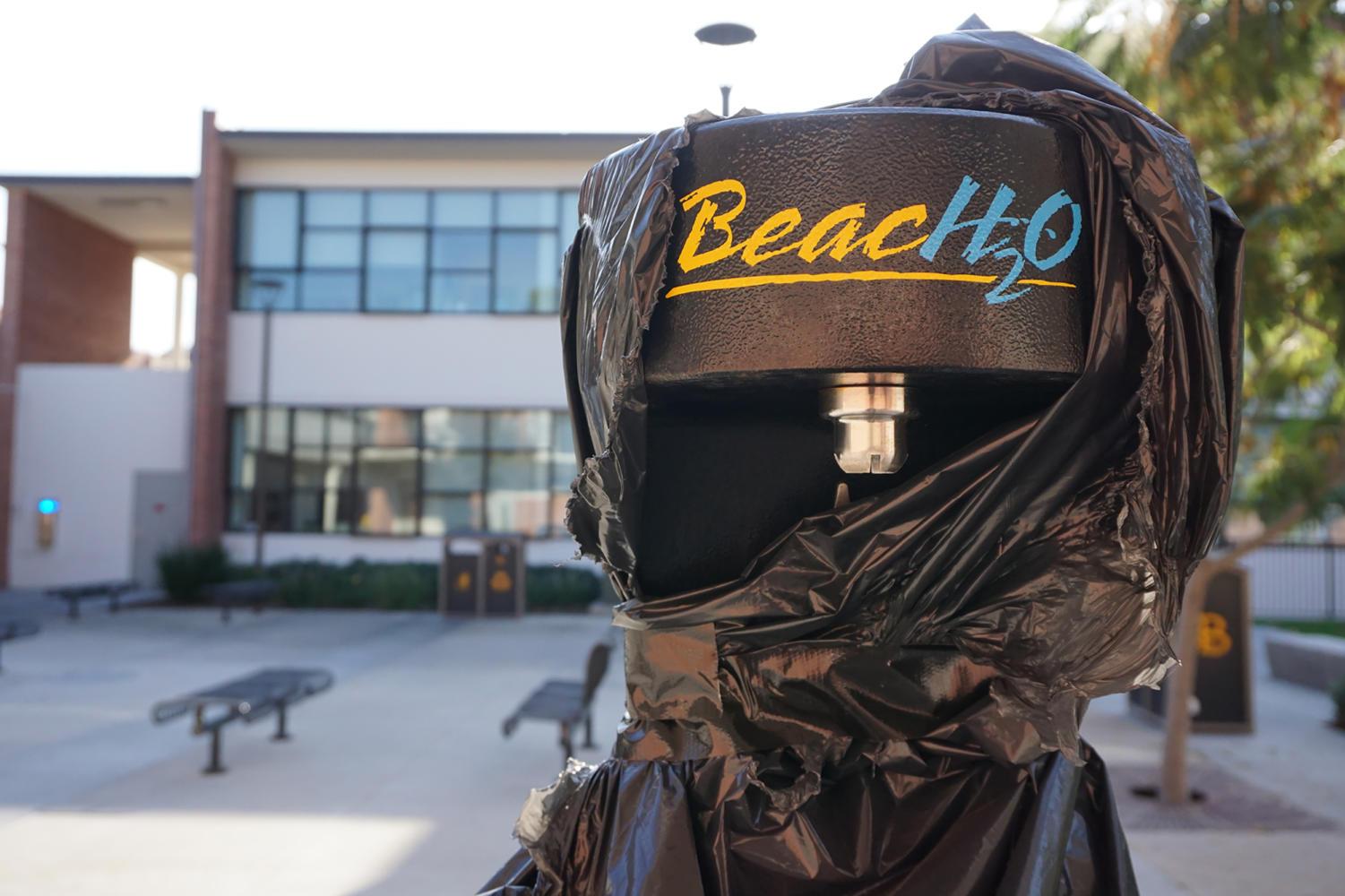As members of Cal State Long Beach continue to quench their thirst with store-bought water bottles, officials finally revealed a solution for the bagged drinking fountains.
According to Mary Stephens, vice president of administration and finance, the majority of water testing results conducted by Titan Environmental were completed Dec. 1. The campus will receive an email sometime during the week that will contain test results and any additional information about the process.
In late October, a CHEM 100 class taught by Elaine Bernal tested drinking fountains in the McIntosh building and found that some of the drinking fountains had tested positive for lead. On Nov. 8, campus officials confirmed the results in preliminary testing stages. All fountains on campus have since been declared out of order and covered with blue tape and black bags.
A public forum will be held Dec. 8 in Hall of Science 105 to address the issue and to quell any concerns that campus members may have. The forum will be led by Stephens and Tony Malagrino, director of facilities management, and will include a doctor from the Long Beach health department, a woman who heads water testing from the Long Beach Water Department and a toxicologist. The event will be held from 11 a.m. to 12 p.m.
“We will be bringing an array of folks together,” Stephens said. “Besides reporters, people will have questions.”
Stephens believes the toxicologist will be a good resource for campus members who have questions about what’s healthy and what’s not. She also said the university is working diligently to bring these results to the campus before the end of the semester.
“We didn’t want to let this hang into the spring,” Stephens said. “We’re trying to be very transparent about what we’re doing.”
Malagrino confirmed Thursday that recent findings by the university revealed that six fountains in the McIntosh Humanities Building and one outdoor fountain in a softball dugout tested positive for lead.
“The test that Elaine [Bernal] used isn’t a quantifiable test,” Malagrino said. “It’s a strip that changes color just like one you would use to test your pool.”
Regardless of test results, all drinking fountains installed before 1990 will be updated, according to Malagrino. Facilities will be working to replace 55 of the 309 drinking locations on campus by the spring term.
According to Terri Carbaugh, associate vice president of public affairs, the university was already working to implement more hydration stations on campus and these findings have prompted the campus to expedite the process.
Stephens said the university has access to a risk management fund which allocates money for unplanned expenses such as these.
“We were converting [hydration stations] overtime and clearly not fast enough,” Stephens said. “Because we need to do this quickly, we are actually going to have outside help.”




